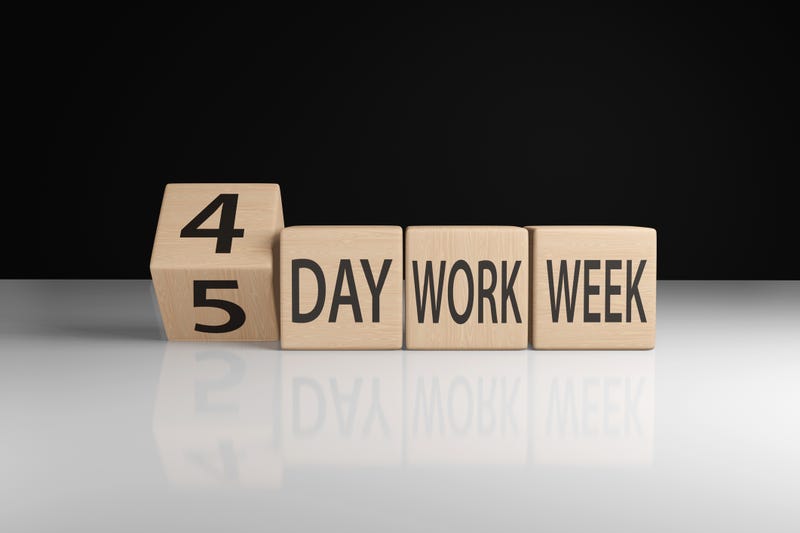
ST. LOUIS (KMOX) - After the COVID-19 pandemic began, lockdowns hit the majority of U.S. offices and full-time workers got a real taste of work-from-home life.
Now, a new Bankrate poll reveals 89% of full-time employees or those seeking full-time work prefer a four-day work week.
The study also stated the majority of full-time workers would sacrifice something for a shorter workweek. 54% of those in support would be ok working longer hours, 37% would change their jobs or industries, and 10% would take a pay cut.
Sarah Foster, a Bankrate Analyst, joined KMOX on Total Information A.M. Monday to talk about the results. Foster said the pandemic might've been what resurged this conversation surrounding a four-day workweek.
"The idea all along, even since the Great Depression of the 1930s, is that work weeks would keep getting shorter," Foster said. "But momentum was kind of slowed, until the 2020 coronavirus pandemic, that blurred the lines between work and life."
The study additionally showed support for the four-day work week is nearly universal among Generation Z (93%) and Millennials (91%). These younger Americans prefer a flexible work week and would even change jobs to get it.
"If these are the preferences that some of these younger generations might be advocating for moving forward, maybe it does become something that's more of common-place," Foster said.
Foster said it can be eye-opening to see the difference in younger generations and older ones when it comes to the four-day work week.
"Not necessarily saying that one works harder than the other," Foster said. "But I think there is something to be said, too, about older generations really getting in the habit of the way that they have been working. And likely being closer to retirement than the beginning of their careers as it is for these younger people."
"Pilot Programs" are other studies like this that look at what happens to productivity and revenue when companies working five days a week at 40-hours go down to that shorter four-day week, at only 32 hours.
Foster said a lot of experts mention that the sample sizes for these studies are quite small to reach exact conclusions, but companies that experiment with this schedule decide they actually want to stick with it past trials ending.
"They're finding that there was no material dent to revenue [and] productivity actually improved because workers were maybe even feeling like they could unplug a little bit better, which allowed them to come back fully recharged," Foster said.
Foster said this is very early research and it's still far from becoming the norm, but that more studies could reveal how a 4-day workweek truly impacts the workplace.
